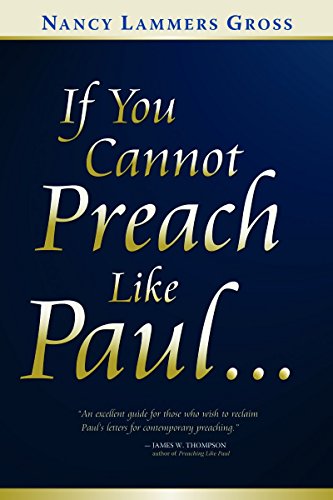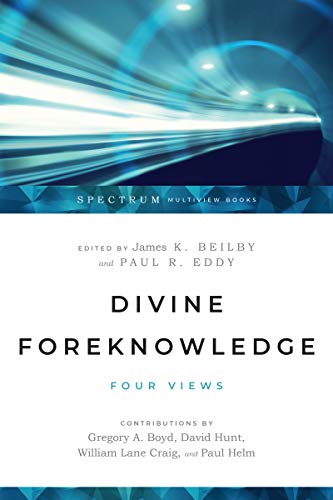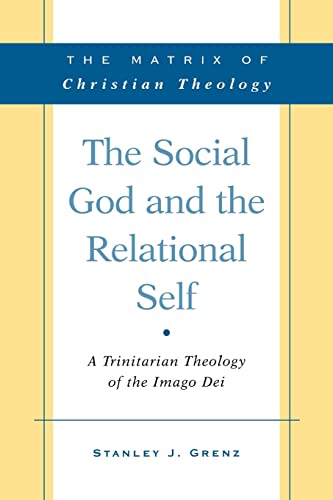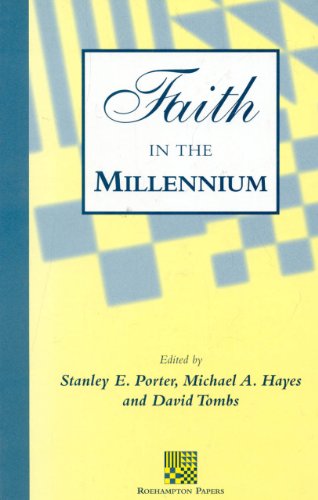IF YOU CANNOT PREACH LIKE PAUL …
Written by Nancy Lammers Gross Reviewed By David JackmanThis intriguing book begins with the bold assertion, ‘My purpose is to reclaim Paul for the preaching ministry of the church’. As Associate Professor of Speech Communication in ministry at Princeton Theological Seminary, the author is both an experienced theorist and practitioner of homiletics.
Her thesis is that Paul has been ‘lost’, not simply because of a swing to narrative preaching, or the primacy of the Gospels in contemporary lectionaries, but chiefly because ‘an agenda that is not related to the intention of the biblical text’ has been imposed on Paul. Since the Reformation, Pauline preaching has majored on saying what Paul said; but in terms of systematic theology, or as a proof text, deriving a ‘kernel of truth’, or simply unfolding a linear argument. The remedy is not to say what Paul said but to do what he did, exegeting the Scriptures in order to preach Christ in a way which impacted his first-century world.
In order to accomplish this goal—‘a dialogue between the gospel and the contemporary situation’—two paradigm shifts need to occur. The first concerns our attitude towards Paul, and involves a move ‘from system builder to conversational pastor’. This hermeneutical change identifies Paul’s theological method as occasional, contextual and dialogical, rather than systematic. The dialogue between his interpretation of the gospel and the experience of his churches provides a great model for preaching, since his aim was (and ours should be) to show the hearers how to live a life of Christian excellence, by proclaiming why we are to do what we are to do.
The second shift, described as ‘from bridge to swing’, is homiletical. Classic exegetical method has turned Scripture into ‘an objectified, exteriorized collection of truth statements or truth ideas’. All too often there is no real conversation with the text, so that the chasm between its world and our own can only be bridged by the preacher’s own interpretative leap, but this is unsatisfactory, because ‘different people will hear the witness of the Scripture differently’.
It is this author’s view of Scripture as ‘a witness’, which shapes the rest of the book. The text bears witness, through the Spirit in our hearts and our experience of God in the world, to ‘the world of the gospel’ which we should preach ‘rather than the Bible’ (86). We cannot know the author’s intention, and even if we could, it is ‘not necessarily the most significant meaning for us today’, since ancient contextualised words do not bind God. He always makes them new in proclamation, and it is only in proclamation that we reach interpretation. Historical-critical methods help most by showing us what the text does not mean, challenging our prejudices, but the text discloses to the interpreter a world of its own, which can only be understood by the ‘dispossession of the interpreter’s ego and narcissistic intellectual tendencies’. The preacher must lay aside his own need to know and control, so as to embrace the conversational ‘swing’ between understanding and explanation—a ‘dynamic hermeneutical process’ of ‘rigorous dialogue’.
The book ends with three sample sermons from the author, in original note form, illustrating the method. They aim to bring Scripture into conversation with our contemporary world ‘in such a way that a fresh word is brought to life’. They are certainly very contemporary, very reflective and highly personal, but with very little Bible. At first, I thought many of the stimulating comments of the first part of the book were flawed by a defective view of Scripture, but I have come to the conclusion that it is this view which actually dictates the paradigm shifts and ultimately moves us into post-modern ‘resonance’ preaching, where the text becomes the pretext. Regretfully, I have to conclude that if you cannot preach like Paul, don’t preach like Nancy.
David Jackman
Proclamation Trust, London







